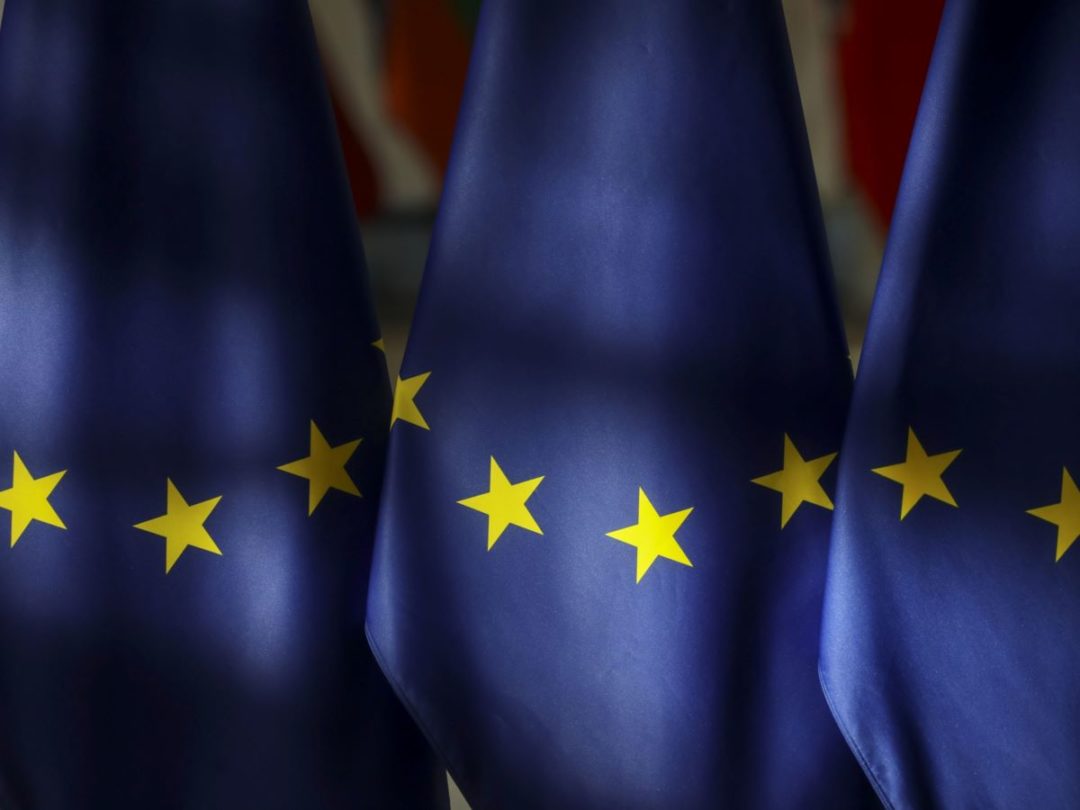
Visit Our Sponsors |
|
|
|
|
|
|
|
|
|
|
|
|
|
|
|
|
|
|
|
|
|
|
|
|
|
|
|
|
|
|
|
|
|
|
|
|
|
|
|
|
|
|
|
|
|
|
|
|
|
|
|
|
|
|
|
|

The European Commission wants the power to force companies to fill orders within the European Union first during times of crisis, or risk fines.
According to a draft document seen by Bloomberg News, “the Commission may, in exceptional circumstances,” require companies to accept such priority rated orders of “crisis-relevant goods.”
If they don’t, companies could face fines up to “1.5% of the average daily turnover in the preceding business year for each working day of non-compliance,” the draft said.
The commission is set to make the proposal public in mid-September. Nine EU countries -- including Belgium, Denmark and the Netherlands -- warned this summer as the proposal was being drafted that it could overstep the bloc’s authority.
The Single Market Emergency Instrument plan would give the commission far more power to intervene in the EU’s supply chain in a crisis. Motivated by the initial chaos caused by the COVID-19 pandemic, the proposal is seen internally as the EU’s equivalent of the U.S. Defense Production Act.
Read more: Biden Invokes Cold War Powers to Boost EV Battery Production
The EU’s executive arm wrote that recent crises like the pandemic and Russia’s invasion of Ukraine have shown how “fragile” the single market can be and how much the European economy depends on it.
This will only become more important anticipating possible emergencies including “geopolitical instability, climate change and resulting natural disasters, biodiversity loss, and global economic instability,” the commission wrote. “The functioning of the Single Market needs to be guaranteed in times of emergency.”
The commission already included similar ideas when it proposed the EU’s Chips Act earlier this year to head off potential semiconductor shortages.
Closer monitoring of supply chains will be a major part of the EU’s plan. Both the commission and EU countries would consistently audit strategic supply chains to prevent shortages. The draft repeatedly said that the EU would safeguard the confidentiality of commercially sensitive information.
Fines for Violations
Just as the commission could have the power to fine companies that do not prioritize EU orders, the commission could also fine companies that “intentionally or through gross negligence” supply incorrect or misleading information. A fine for not supplying the right information could not exceed 300,000 euros ($300, 650).
EU countries could also be required to stockpile certain items if a so-called “vigilance mode” is activated. Either the commission, or 14 member states, could force an EU country to do so if “the efforts of the Member State concerned to meet the voluntary target are insufficient, but also indispensable to ensure the preparedness to a potential Single Market emergency.”
The commission, building on its lead role in purchasing vaccines during the COVID-19 pandemic, would be allowed to negotiate for crisis-relevant goods if at least two EU countries request it. EU countries that participate in the joint purchase would not be allowed to purchase the items separately.
Freedom of Movement
The commission also wants more authority to avoid internal EU border closures and export bans as happened in the early days of the pandemic, when countries like Germany and France cut off supplies of personal protective equipment and the Schengen area was repeatedly closed.
The commission wrote in the draft that EU countries should only limit the free movement of people if there are no alternatives. These restrictions must be “evidence-based” and time-limited.
Countries could not grant more generous travel rules to neighboring member states or make travel unnecessarily complicated for workers during an emergency. Similarly, countries could not impose any export restrictions within the EU of any “crisis-relevant goods.”
The commission would also be able to force a country to lift any measures that impact the free movement of goods, services or people if they do not comply with EU law.
RELATED CONTENT
RELATED VIDEOS
Timely, incisive articles delivered directly to your inbox.







